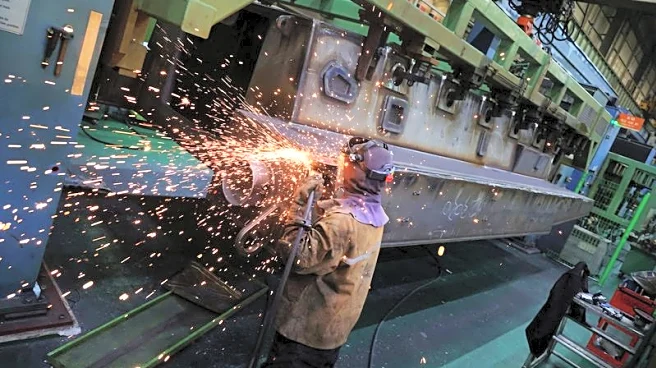SEOUL (Reuters) -South Korea's factory activity expanded for the first time in eight months in September underpinned by improving overseas demand, a business survey showed on Wednesday, although uncertainty
persisted over trade talks with the U.S.
The Purchasing Managers Index (PMI) for manufacturers in Asia's fourth-largest economy, released by S&P Global, stood at 50.7 in September, up from 48.3 in August.
The index rose above the 50-mark, which separates expansion from contraction, for the first time since January 2025 and registered the highest reading since August 2024.
Both output and new orders grew last month, after falling for six and five consecutive months, respectively, on the launch and mass production of new products, according to the survey.
Overseas demand grew for the first time in six months, led by improvements in major Asia-Pacific markets, though it was partially offset by a subdued domestic economy.
"It appears likely that improved conditions will be sustained in the near term, as firms cited a renewed rise in work outstanding," said Usamah Bhatti, economist at S&P Global Market Intelligence.
The trade-reliant economy grew at the strongest pace in the second quarter as consumer spending rebounded and exports remained robust, driven by technology demand despite headwinds from U.S. tariffs in other sectors.
South Korea has yet to formalise an agreement on a preliminary trade deal with U.S. President Donald Trump in July due to concerns about the foreign exchange implications and structure of a $350 billion investment package included in the pact.
Wednesday's survey showed stocks of input purchases were depleted at the fastest pace since April 2024 driven by growing demand, while backlogs of work increased for the first time in six months. Firms responded by raising new purchases by the most in 13 months and employment by the most in two years.
South Korean manufacturers remained optimistic about the outlook for the year ahead, albeit to a softer degree than the month before, on expectations of new product launches and improving momentum in the domestic economy, while some concerns remained about the impact of U.S. tariffs.
(Reporting by Jihoon LeeEditing by Shri Navaratnam)









